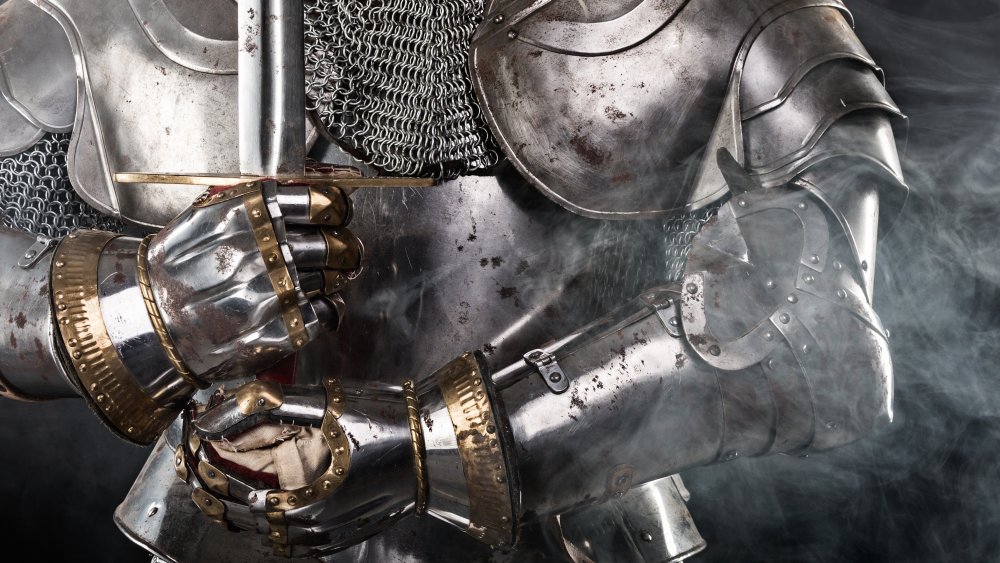The Legend Of Joyeuse, Sword Of Charlemagne
History knows Charlemagne, whom the Franks crowned as their king in 768 AD, as the first uniter of Western Europe since the fall of the Roman Empire. And, in the true fashion of a legendary medieval king, he didn't get that reputation without the help of a magical sword.
Legend says that Charlemagne's sword, which he named Joyeuse (French for joyful), had magical powers. According to Ancient Origins, it shined so bright that it blinded its wielder's opponents and also protected its handler from being poisoned. It was forged by a famous blacksmith named Galas, who took three years to finish it.
The Song of Roland, an eighth-century epic poem recounting the slaughter of Charlemagne's armies in an ambush of angry Basques in the Battle Roncevaux Pass in 778, tells why the king of the Franks (who is also known as Charles) named his sword Joyeuse.
"We all know well the history of the lance wherewith our Lord was wounded on the cross," wrote the poem's anonymous author. "Charles has the point of it, by God's grace, and he has had it encased into the golden pommel of his sword."
Joyeuse's journey through the centuries
The Song of Roland tells of how Charlemagne once lost the sword in battle. He offered a reward for its return and one of his soldiers finally brought it to him. The king kept his word, planting the blade in the earth and thereby founding the town of Joyeuse, now located in the modern-day French department of Ardèche. "Here will be built and estate of which you will be the lord and master," he told the worthy soldier, "and your descendants will take the name of my wonderful sword."
The historical record is unclear as to what happened to the supernatural sword after Charlemagne's death in 814. It appears to have been lost for a few centuries, before a blade identified as his trusty Joyeuse was used to coronate King Philip the Bold in 1270. It went on to be used in several French coronation ceremonies, the last time being the crowning of King Charles X in 1824.
The sword connected to Charlemagne's Joyeuse has been in the Louvre Museum in Paris since 1793. Along with the history of the centuries, it also contains parts added onto it as it was used for coronations. Whether it truly can protect one from poisons or blind entire armies, the truth about Charlemagne's legendary sword is that it has captured our imaginations for centuries and continues to do so today.

